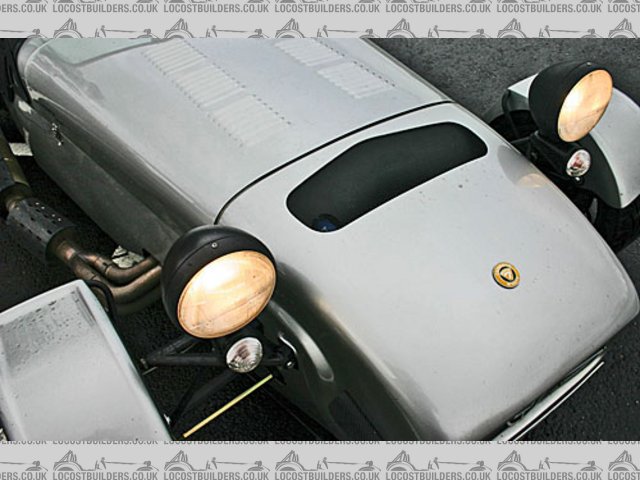Jon Ison
|
| posted on 10/3/08 at 07:28 PM |

|
|
Hot air ?
Toying with the idea of putting a deflector plate at an angle behind radiator and deflecting hot air upwards and out of yet to be cut holes in
nosecone.
Worth it ?
Not worth it ?
Good idea ?
Bad idea ?
|
|
|
|
|
caber
|
| posted on 10/3/08 at 07:43 PM |

|
|
Should be a good idea if you have the space. Should help reduce lift at the front and keep engine bay a bit cooler. I fancy some wings for the front
of mine I don't have space for a deflector and hole in the nosecone
Caber
|
|
|
Volvorsport
|
| posted on 10/3/08 at 07:48 PM |

|
|
yes do it .
where elso does the air have a chance to go ? Underneath ? through the trans tunnel ?
pressure built up in front of the radiator causes lift , by making the hole in the nosecone after the radiator the right size , you can drive air
through it and create down force .
www.dbsmotorsport.co.uk
getting dirty under a bus
|
|
|
PAUL FISHER
|
| posted on 10/3/08 at 07:59 PM |

|
|
Have been looking into this myself,3 reasons,get heat away from the engine bay,reduce lift,and keep my inboard shockers a bit cooler,the caterham CSR
has the overcome the problem by tilting the radiator forward about 20 degrees,and then ducting it out of the top of the nose.
 
Rescued attachment radiator ducting.jpg
|
|
|
PAUL FISHER
|
| posted on 10/3/08 at 08:02 PM |

|
|
And tilted radiator
|
|
|
r1_pete
|
| posted on 10/3/08 at 08:02 PM |

|
|
Sounds like a plan, isn't that how the Exige works?
|
|
|
Jon Ison
|
| posted on 10/3/08 at 10:21 PM |

|
|
mmmmmmm, does sound like a plan, I was thinking maybe a small lip in front of the "yet to be made no turning back" holes to maybe create a
small vacuum and help pull the air out to ?
Not sure my solution will look as neat as the one in the pics.
|
|
|
jlparsons
|
| posted on 10/3/08 at 10:33 PM |

|
|
I like the idea. My first thought is that doing so could increase the temperature in the engine bay? Sure the air coming on past the rad is going to
be hot, but it'll be a lot cooler than the engine and exhaust so it must contribute to cooling the bay. Is this easy enough to overcome by
ensuring the bay itself is adequately vented too, ie no undertray and lots of louvres on the bonnet? If so then it could be a good way to increase
flow through the rad and increase cooling efficiency (if that's something you need) and maybe decrease front end lift without increasing
temperature under the bonnet.
[Edited on 11/3/08 by jlparsons]
Any resemblance to real persons, living or dead is purely coincidental. Some assembly required. Batteries not included. Contents may settle during
shipment. Use only as directed. No other warranty expressed or implied. Do not use while operating a motor vehicle or heavy equipment. Subject to
approval, terms and conditions apply. Apply only to affected area. For recreational use only. All models over 18 years of age. No user-serviceable
parts inside. Subject to change. As seen on TV. One size fits all. May contain nuts. Slippery when wet. For office use only. Edited for television.
Keep cool; process promptly.
|
|
|
rick q
|
| posted on 11/3/08 at 12:51 AM |

|
|
I reckon it's worth doing, and it's the next thing on my list, but I've decided not to attempt to duct from the radiator to the
vents - just provide the vents.
I run a full tray below the engine bay, and temps inside are at least 6 deg C above ambient, until I slow down when they go above 50 deg C (where my
digital thermometer throws it's hands in the air)
I believe the vents should be at least the area of the radiator, and to ensure they work as intended, there will need to be some small deflector at
the front to ensure the vent is at low pressure. (Look at the Dunkvoort web site for inspiration).
Pretty fiddly stuff for someone as inept as me - but worth a try I believe.
|
|
|













